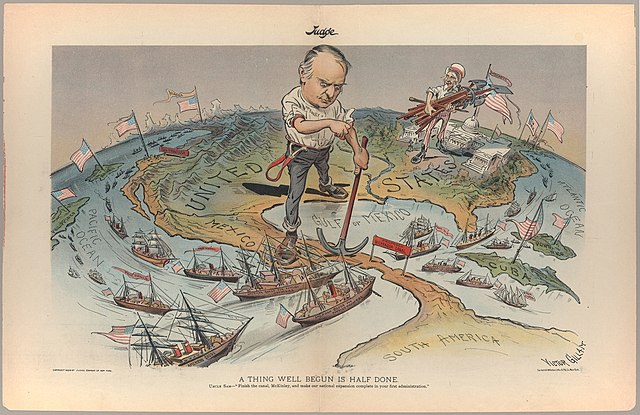The theory of imperialism refers to a range of theoretical approaches to understanding the expansion of capitalism into new areas, the unequal development of different countries, and economic systems that may lead to the dominance of some countries over others. These theories are considered distinct from other uses of the word imperialism which refer to the general tendency for empires throughout history to seek power and territorial expansion. The theory of imperialism is often associated with Marxist economics, but many theories were developed by non-Marxists. Most theories of imperialism, with the notable exception of ultra-imperialism, hold that imperialist exploitation leads to warfare, colonization, and international inequality.
Karl Marx did not write about imperialism directly, but inspired many later theories.
Like many liberals, Hobson's objection to imperialism was strengthened by his disgust at the imbalance of power in the Boer War.
A modern steamboat and primitive rafts in the Chilean port of Huasco in the 1850s illustrate the concept of uneven development.
Hilferding cited the Rock Island Railroad Company as a typical concentration of finance capital.
Imperialism is the practice, theory or attitude of maintaining or extending power over foreign nations, particularly through expansionism, employing both hard power and soft power. Imperialism focuses on establishing or maintaining hegemony and a more or less formal empire. While related to the concepts of colonialism, imperialism is a distinct concept that can apply to other forms of expansion and many forms of government.
British assault on Canton during the First Opium War, May 1841
This cartoon reflects the view of Judge magazine regarding America's imperial ambitions following McKinley's quick victory in the Spanish–American War of 1898.
Entrance of the Russian troops in Tiflis, 26 November 1799, by Franz Roubaud, 1886
The capture of Lạng Sơn during the French conquest of Vietnam in 1885








